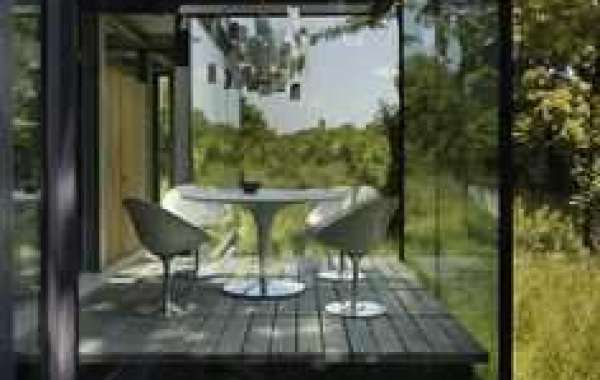What are Vacuum Insulated Glass?
Vacuum Insulated Glass (VIG) is a highly innovative and effective glazing solution that has revolutionized the insulation capability of windows. It is a type of insulation glass that helps to eliminate heat transfer between the two glass sheets due to gaseous conduction and convection, and radiative heat transfer is reduced to a low level by one or two internal transparent glass sheets with low emittance coatings. This makes it highly energy-efficient and cost-effective in the long run.The technology behind Vacuum Insulated Glass is quite simple.
The glass panes are separated by a vacuum-sealed space, which is filled with a gas that has low thermal conductivity. This creates a barrier that prevents heat from passing through the glass, thereby reducing heat loss and improving the overall insulation of a building. The vacuum-sealed space also helps to reduce noise transmission, making VIG highly beneficial for use in high-traffic areas and in buildings located near busy roads.
Benefits of Vacuum Insulated Glass :
Vacuum Insulated Glass has several benefits over traditional double-glazed windows. Firstly, it provides a much higher level of insulation, which helps to reduce energy consumption and costs. This is particularly important in colder climates, where heating costs can be a major expense for homeowners and businesses. Secondly, it is highly durable and long-lasting, which means that it can provide energy-saving benefits for many years to come. Finally, it is highly customizable and can be tailored to meet the specific needs of different buildings and environments.
One of the main advantages of Vacuum Insulated Glass is that it can be used in a wide range of applications, including residential, commercial, and industrial buildings. It is particularly useful in areas where temperature control is critical, such as hospitals, laboratories, and data centers. In these environments, it can help to maintain a stable temperature, which is essential for the proper functioning of sensitive equipment and materials.
Vacuum Insulated Glass is also highly beneficial for use in green buildings, where energy efficiency is a top priority. It can help to reduce the carbon footprint of a building by improving its insulation and reducing its energy consumption. This is particularly important in today's world, where climate change is a major concern and reducing our carbon emissions is a top priority.
In conclusion
Vacuum Insulated Glass is a highly innovative and effective glazing solution that has revolutionized the insulation capabilities of windows. It is highly energy-efficient, cost-effective, and customizable, making it an ideal solution for a wide range of applications. If you are looking to improve the energy efficiency of your building or reduce your carbon footprint, then Vacuum Insulated Glass is definitely worth considering. So, go ahead and upgrade your windows to VIG today and start reaping the benefits of energy savings and improved comfort.







